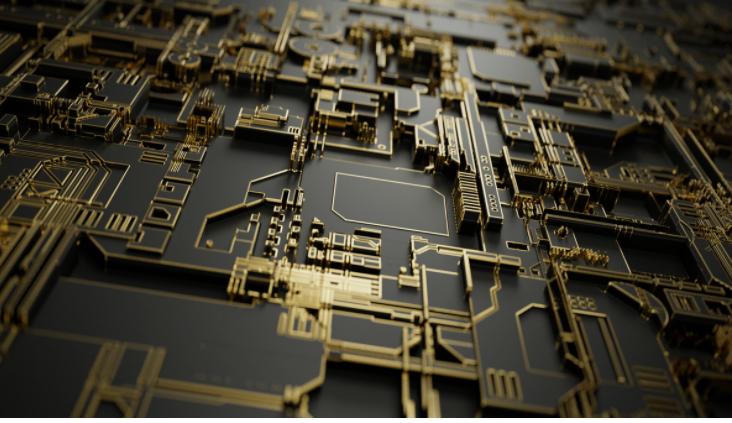"6S" system of SMT production workshop
In order to ensure efficient and orderly production, companies will formulate relevant systems that suit their own development needs, and the "6S" system is often the core of the formulation. Today, the editor will discuss the "6S" standard implemented by Nuo's electronic SMT production workshop with colleagues in the industry.
1. Seiri
Purpose: a.Improve and increase the working area; b.There is no debris on the site, and the roadway is unobstructed to improve work efficiency; c.Reduce the chance of bumping, ensure safety, and improve quality; d.Eliminate management mixing, mixing, etc. Errors and accidents; e. Conducive to reducing inventory and saving money; f. Changing work style and improving work mood.
Significance: Separate necessary and unnecessary personnel and objects, and then process them, classify the actual placement and stagnant items on the production site, and for each station in the workshop to become the front and back of the equipment, the channel left and right, the upper and lower parts of the plant, All dead corners inside and outside the toolbox and in this room must be thoroughly searched and cleaned up, so that there is nothing left in the scene.

2. Seiton
Definition: Necessities are positioned according to regulations, arranged in a neat and orderly manner, and clearly marked.
Purpose: Do not waste time looking for items, improve work efficiency and product quality, and ensure production safety.
Significance: quantify and locate the people, things, and things needed. After finishing the previous step, the items that need to be left on the production site are scientifically and reasonably arranged and connected, so as to obtain the needed things as quickly as possible. Complete the work under the most effective rules, systems and the most concise process. Key points: a. There must be a fixed place and area for the collection and placement of items, so that you can find them; b. The placement of items must be scientific and reasonable; c. The placement of items should be visualized, so that the quantitatively assembled items can be seen and placed. Different colors and marks are used to distinguish the areas where different items are placed.
3. Cleaning (Seiso)
Definition: Remove the dirt on the site, and remove the material waste in the operation area.
Purpose: Keep the scene clean and bright.
Significance: The removal of dirt in the workplace makes it easy to find the source of abnormality. It is the first step in implementing autonomous maintenance, mainly to improve equipment utilization.
Key points: a. The items you use, such as equipment, tools, etc., should be cleaned by yourself, don't rely on others, and don't increase specialized cleaning workers. b. The cleaner of the equipment focuses on the maintenance of the equipment. The cleaning equipment should be combined with the equipment inspection, and the cleaning is the inspection. The cleaning equipment should also be used for the hole-slip work of the equipment, and cleaning is also maintenance. c. When cleaning the ground and discovering flying debris and oil and water leakage, find out the cause and take measures to improve it.
4. Clean (Seiketsu)
Definition: Institutionalize and standardize the implementation of sorting, rectification, and cleaning, and maintain its results.
Purpose: Carefully maintain and insist on sorting, rectifying, and cleaning to keep it in its best condition.
Significance: Through persistence and deepening of tidying, rectification, and cleaning activities, the root cause of safety accidents can be eliminated. Create a good working environment so that employees can work happily.
Key points: a. The vehicle environment must not only be tidy, but also clean and hygienic to ensure the health of the workers and increase their enthusiasm for work. b. Not only the items must be clean, but the workers themselves must also be clean, such as clean work clothes, tidy instruments, timely haircuts, shavings, manicures, baths, etc. c. Workers must not only be physically clean, but also spiritually clean", treat others politely and respect others. d. Keep the environment free from pollution, and further eliminate muddy air, dust, noise and pollution sources. Eliminate occupational diseases.
5. Literacy (Shitsuke)
Definition: Everyone operates in accordance with the rules, acts in accordance with the rules, develops good habits, and everyone becomes an educated person.
Purpose: To improve the "quality of people" and cultivate people who are serious about any work.
Significance: It is the core of the "6S" activity to strive to improve the personnel's self-cultivation and to develop the habit and style of strict compliance with the rules and regulations.
6. Safety
Definition: Discover potential safety hazards and eliminate them in time or strive for effective preventive measures.
Purpose: To establish a safe production environment, all work should be established on the premise of safety. Significance: Protect personnel and goods from infringement, and create a work site without accidents. Safety signs for common equipment.
iPCB is a high-tech manufacturing enterprise focusing on the development and production of high-precision PCBs. iPCB is happy to be your business partner. Our business goal is to become the most professional prototyping PCB manufacturer in the world. Mainly focus on microwave high frequency PCB, high frequency mixed pressure, ultra-high multi-layer IC testing, from 1+ to 6+ HDI, Anylayer HDI, IC Substrate, IC test board, rigid flexible PCB, ordinary multi-layer FR4 PCB, etc. Products are widely used in industry 4.0, communications, industrial control, digital, power, computers, automobiles, medical, aerospace, instrumentation, Internet of Things and other fields.